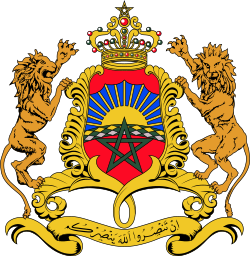This article needs additional citations for verification .(November 2010) |
| Currency | Moroccan Dirham (MAD) de facto |
|---|---|
| calendar year | |
Trade organisations | Morocco claims and occupies most of Western Sahara, so trade partners are included in overall Moroccan accounts. The Sahrawi Arab Democratic Republic laying claim to the territory has ratified AEC treaty, but is not active. |
| Statistics | |
| GDP | $908.9 million (2007 est) |
GDP per capita | 2,500 (2007 est) |
Labour force | 144,000 (2012 [update] ) |
Labour force by occupation | agriculture (50%), services (50%) |
Main industries | Phosphates, fishing |
| External | |
Export goods | phosphates 62% |
Import goods | fuel for fishing fleet, foodstuffs |
| Public finances | |
| N/A | |
All values, unless otherwise stated, are in US dollars. | |
 |
|---|
 |
|---|

The majority of the territory of Western Sahara is currently occupied by the Kingdom of Morocco. As such, the majority of the economic activity of Western Sahara happens in the framework of the economy of Morocco.
Contents
In the Moroccan-occupied territory, fishing and phosphate mining are the principal sources of income for the population. [1] The territory lacks sufficient rainfall for sustainable agricultural production; [2] hence, most of the food for the urban population must be imported. Trade and other economic activities are controlled by the Moroccan government. [1]
The Free Zone (POLISARIO-administered territory) is mainly uninhabited. There is practically no economical infrastructure and the main activity is camel herding nomadism. The government-in-exile of the Polisario Front had also signed contracts for oil exploration, [3] but there is no practical work, because the zones given are in the Moroccan-occupied part of the territory.[ citation needed ]
Key agricultural products from Western Sahara include fruits and vegetables (grown in the few oases), as well as camels, sheep and goats. Fishing and oil exploration contracts concerning Western Sahara are sources of political tension. [4] [5] [6]